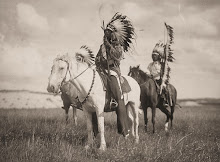John
Brown, pictured above in 1846, was born in Connecticut in 1800 and
lived for 59 years until he was executed. Brown was an abolitionist,
dedicated to the cause of freeing slaves and ending the institution of
involuntary servitude in America. Unlike other more celebrated
abolitionists, Harriet Tubman, Frederick Douglass, William Lloyd
Garrison, to name a few, the legacy of John Brown is unheralded. What
distinguishes Brown, from others sharing his same passion, was the
violent means he sought to end slavery. He is most famous for two
incidents, Pottawatomie, Kansas, and the
raid on the federal arsenal in Harper's Valley, Virginia. By modern
definitions, Brown was the first domestic "terrorist". In the
"Pottowatomie Massacre, Brown killed 5 white Southerners over
settlement issues. When lawmakers admitted Kansas as a state, it was
stipulated that their stance on slavery would be decided by popular
sovereignty. This turned out to be a disaster that gave rise to the
term, "Bleeding Kansas," to describe the skirmishes between
anti-slavery advocates like Brown and pro-slavery supporters.
Brown's hell raising in Kansas would not be his defining moment. In 1859 as the country was teetering on the brink of separation, his raid on the federal arsenal in Harper's Ferry, Virginia was the final straw. Following months of planning, Brown and 19 men managed to gain control of the arsenal with intentions of arming slaves across the countryside and leading a revolt. Captured by a contingent of U.S. Marines led by Robert E. Lee, Brown's dream was quickly extinguished.
Brown was not the first one to attempt to arms slaves in revolt, nor was he the most successful, in the terms often measured by martyrs. In August of 1831 in Southampton, Virginia, Nat Turner led 50 slaves on a 2 day spree that saw 56 white men, women and children die. Nat's case is slightly different in that he was a slave, it was his own freedom that was worth dying for. Brown is a curious figure in that regard, a free white man, so passionate about the liberation of slaves, that he was willing to make war.His legacy as an abolitionist is difficult to judge. His cause cannot be doubted, but his methods are troubling. He is a freedom fighter for giving his life to a cause, for not waiting for political machinations to free a race from bondage. Yet he is a terrorist for his unwarranted attack on American military installments. This leaves us with a Machiavellian question, does the end justify the means?








0 comments:
Post a Comment